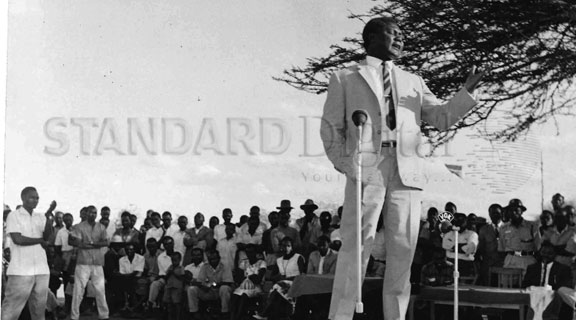×
The Standard e-Paper
Home To Bold Columnists
 |
| Outspoken politician Tom Mboya during a public rally. [PHOTO: file/STANDARD] |
By KENNETH KWAMA
A quiet fallout between Kenya’s first President Jomo Kenyatta and his erstwhile political ally, Tom Mboya, led to the formation of the Central Organisation of Trade Unions (Cotu) in the early 1960s.